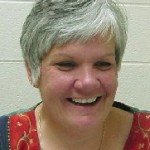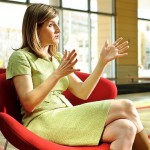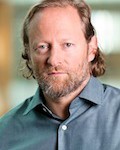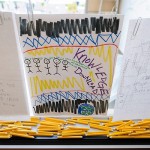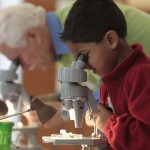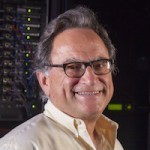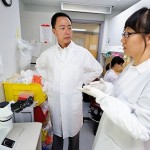Tag Wisconsin Institute for Discovery
UW-Madison team probes home health environments with virtual reality
In health care environments, nurses and doctors can closely monitor patients' medical regimen and schedules. But when a patient leaves the clinic or hospital to go home, the responsibility for care transitions to families and patients. The result: Regimens might not be adhered to as closely.
‘Video Games and Learning’ pilot MOOC launches
Kurt Squire has enrolled in about a dozen Massive Open Online Courses (MOOCs). “The experience was fun — to essentially be back in college again, but to feel like I’m doing so driven by my own interest without the pressures of grades and so on,” Squire says.
UW-Madison launches national Agricultural Innovation Prize
As the world's population continues to increase, so does the need for sustainable and secure food systems. A new student contest run by the University of Wisconsin–Madison advances the idea that long-term solutions in agriculture cannot draw on innovations from only one discipline.
Cartoonist Lynda Barry joins WID and Art Department faculty
When award-winning cartoonist and author Lynda Barry distributes her hand-drawn syllabus to University of Wisconsin–Madison students on the first day of class, she intentionally skips introductions. In this environment, a student's academic major, age and even name matter little compared to the topics delved into as a group.
Wisconsin Science Festival features Nobel, Pulitzer Prize winners and NPR host
The Wisconsin Science Festival starts Sept. 26 with four jam-packed days, inviting people of all ages and interests to unleash their curiosity.
WID researcher locates “virtual eyes” to enhance 3D experience
3D movies are a popular trend this year, with countless films opting to include features that make viewers feel as though they are a part of the action. But what if 3D technologies in movies were not just a feature, but an entire, encapsulating experience?
WID conference probes math challenges in optimizing solutions to industry problems
With every flipped light switch, plane takeoff, package delivery and even medical procedure embedded in 21st-century life, there’s a series of decisions that have been optimized to make these actions work the most efficiently. A thriving community is constantly finding the best way to run these systems in order to reduce costs for companies and customers, get the most out of resources, improve medical treatments and to achieve a multitude of desired outcomes.
Livny earns distributed computing award
Miron Livny, a UW–Madison computer sciences professor and director of core computational technology at the Morgridge Institute for Research and the Wisconsin Institute for Discovery, has been honored for his groundbreaking contributions to the field with the 2013 High Performance Parallel and Distributed Computing (HPDC) Achievement Award.
Hackathon links humanities and sciences
Jillian Sayre contends that Herman Melville’s whaling ship Pequod and its encounters with other boats at sea may have toted meaning beyond the characters onboard.
Waisman scientists model human disease in stem cells
Many scientists use animals to model human diseases. Mice can be obese or display symptoms of Parkinson's disease. Rats get Alzheimer's and diabetes. But animal models are seldom perfect, and so scientists are looking at a relatively new type of stem cell, called the induced pluripotent stem cell (iPS cell), that can be grown into specialized cells that become useful models for human disease.
Two researchers named Shaw scientists
The Greater Milwaukee Foundation has chosen two University of Wisconsin–Madison researchers for 2013 Shaw Scientist Awards.
Free bike repairs, bagels at Discovery building May 13
Participants in this year’s Bike to Work Week will find free bike repairs, bagels and coffee at the Wisconsin Institutes for Discovery building on Monday, May 13, from 7 to 9:45 a.m.
Research uses muscle activity to move virtual objects
A team at UW–Madison says it has developed, for the first time, a way to move virtual objects in an immersive virtual reality environment through the use of muscle activity.
Wisconsin Institute for Discovery adds CBS and WPR distinguished scholars to collaborative environment
When Wisconsin Institute for Discovery (WID) director David Krakauer arrived on campus, he envisioned creating a place where leading-edge science effortlessly flowed beyond the walls of the Discovery building and the university.
‘Hacking’ to bridge a divide
On a wall in a darkened room, a single word flashed: divide.
Research shows how computation can predict group conflict
When conflict breaks out in social groups, individuals make strategic decisions about how to behave based on their understanding of alliances and feuds in the group.

